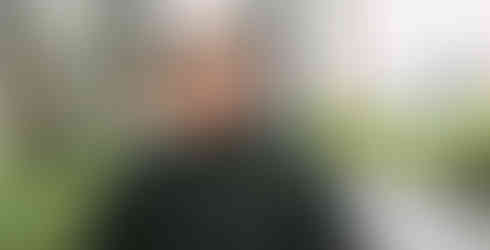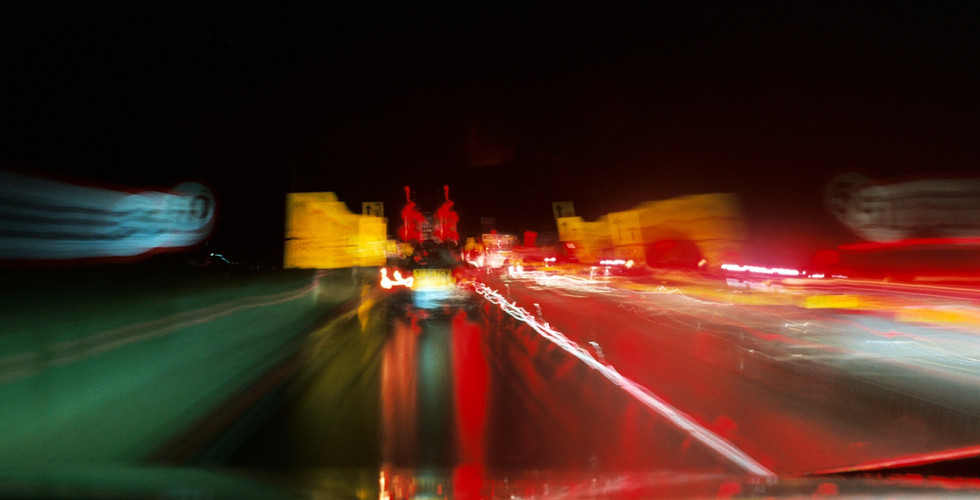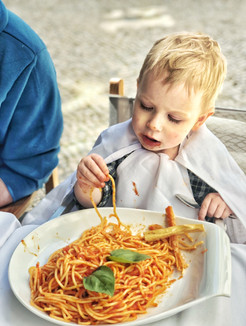Learning Week - Day 4: The Goods | Aberdeen and Aberdeenshire Family Photographer
- .iana

- May 24, 2018
- 5 min read
Updated: Jul 17, 2018
Hello again and welcome back to the Learning Week blog posts!
Today I wanted to touch on equipment, which I often get questions on from clients and friends.
My guess is, if you are a photography enthusiast, you will by now know exactly what to look for in the sea of photographic equipment out there, so this post is directed more at those, who are looking to upgrade from a smartphone camera, but not quite ready to take a leap straight into the deep end of the SLR world.
I am a great believer in the saying that the best camera is the one you have with you and I have in the recent months (see my Flying Mom-tographer blog post) come to understanding exactly what this means. For me, this means that you can take 3 ‘proper’ cameras on holiday with you, this will not guarantee amazing photography happening. It might even have the opposite to the desired effect, where little photos are taken, as the cameras stay at home (too bulky/heavy) and you’re too ‘embarrassed’ to take out your phone, knowing what sits in the camera bag back at the apartment (there’s no logic, but this is where I often found myself).
This being said, a phone camera (no matter how good and I just refuse to be convinced otherwise) is no match to a professional-grade SLR with some outstanding glass in the right hands.
I own three main cameras (and a bunch of little point and shoots from the bygone years, keeping them as paperweights/vintage relics) – a Nikon D800E, which is my ‘partner in crime’ at the photo sessions, a Leica D-Lux (Typ 109) and an analogue/35mm film camera – Nikon F100 (which is my current passion project/struggle/bane/learning curve).
Without getting too techy, through the years of trial and error, I have come to realisation that ‘prime’ lenses (they do not zoom in nor out, they are fixed at one focal length) are my ‘jam’, so I sold off the variety of random, unused lenses I used to have and now only shoot on 50mm and 85mm, with 85mm 1.8 being attached to the D800E 99.99% of the time!
The D800 is a workhorse, I have had it for a number of years, shot many a session with it and know it inside and out – it’s my gal!
All the work of mine your see posted here, on Facebook or instagram is taken with this beauty.
The Leica is brilliant for holidays and outings with the little one – when you would rather avoid smashing his little head with a 1kg + lens beast and also don’t want to get too techy about life. It has built-in WiFi, which the Instagram addict in me appreciates a lot and it also takes awesome videos – which is something else I am currently trying to capture more of, because stationery pictures aren’t giving me the full 360 experience.
Finally, the F100 is a passion/stubbornness project – it's a good old 35mm film camera. Yep, film, the kind you need to load, rewind, develop. It is a costly process and full of mystery - excitement and disappointment (when the scans come back).
I am still finding my feet with it massively and know the next steps I need to take to get better at it, but due to time constraints, it isn’t getting as much airtime as it should, so while it’s part of my arsenal, it’s not a common partner in crime.
Some samples of my film efforts:
Then there is the iPhone camera, which is great for snapping away straight from outta pocket and being able to tuck the ‘camera’ straight back in – I am seriously not a camera snob – if your phone’s camera is cutting it for you, then why change, just get the best you can be at utilising it to its best offerings.
A few iPhone captures from my recent adventures:
The three (reluctantly – four) above tick all my requirement boxes – the artist, the creative mom, the ambitious self-challenge setter and the lazy creative mom.
If you would like to expand your portfolio of equipment that you own (looking to improve the quality of images you take), then I would be happy to offer my advice on what to consider.
Please note, because I am so content with what I’ve got an the most research I do these days is to do with the lenses for my D800E, I am not totally ‘down with the kids’ on the latest cameras, but I know what I have found handy (from a photographer, travel-junkie and mom perspective) and will gladly pass this one for your consideration.
So, if you currently shoot with your phone and are pretty content with the images you are getting, then read no further. You probably don’t need any encouragement to drop a few hundred pounds on a box with buttons, which will (I must say) give you better results.
Warning: you may get addicted and end up like someone I know – with three (reluctantly, four) main cameras and numerous point-and-shoots from the bygone years stashed around your house.
If you’re intrigued, then read on…
First thing to consider is how serious would you like this to get – do you want to go for a camera, which is fairly fuss-free and has a fixed lens (my Leica is like that and I am a 100% satisfied customer with what it can do for me), or would you rather get creative and have the option to change things up (this will cost more, if you start moving between the lenses).
My personal advice is don’t get too (purely) excited about the megapixels.
Without going into too much detail, ‘more’ doesn’t always mean ‘better’ and I have owned a point-and-shoot, that gave me twice the megapixels I now get on the Leica, but the overall image quality was incomparable!
Built-in Bluetooth or WiFi is excellent – this means that you can transfer images directly to your smartphone without needing a computer and following a rather lengthy process (which often would put me off transferring the images at all).
Generally, single lens systems will offer you a good range for portrait and more landscape-y captures, but if you got for a camera with interchangeable lenses, make sure the one(s) you start off with suit your shooting ambition (if you are moving from a smartphone camera, a range somewhere within the 16-70mm span would be a good start).
Cameras to consider (in the region of £500):
Panasonic LX100 - from what I’ve seen of it, it’s a pretty close double of my Leica and I love it, so a personal recommendation there. It comes with handy built-in WiFi, so your images can be on social media within moments of you taking them – if not, why else take them? One nifty accessory to get for it is the Auto Lens Cap – meaning you don’t need to mess around with the lens cap – it automatically opens and closes when you start/switch off the camera.
Fujifilm X-A5 – such a stylish-looking thing, but also comes with impressive performance. It has a flip screen, which allows for shooting ‘from the hip’ – or lower down anyways, for those creative shots and images can be instantly transferred to your smartphone via Bluetooth.
Sony A6000 with 16-50mm lens has a tonne of megapixels, comes with a wide angle zoom lens (great for landscapes and portraits) and that essential built-in WiFi for connectivity.
As I stated at the start of this post, the best camera is the one you have with you, so be sure to settle on something, that will give you excellent quality, won’t cost an arm and a leg and will be compact/comfortable enough to use a LOT and not put you off photography altogether.
Aberdeen | Aberdeenshire | Laurencekirk | Photography | Family | Newborn | Children | Childhood | Photographer | Corporate | Headshots | Business | Professional | Portraits | Lifestyle | Natural Light | Blogger | Blogging | Beauty | Chtefan Photography | Scotland | Learning Week 2018 | Coaching | Photographic Equipment Recommendations


























Comments